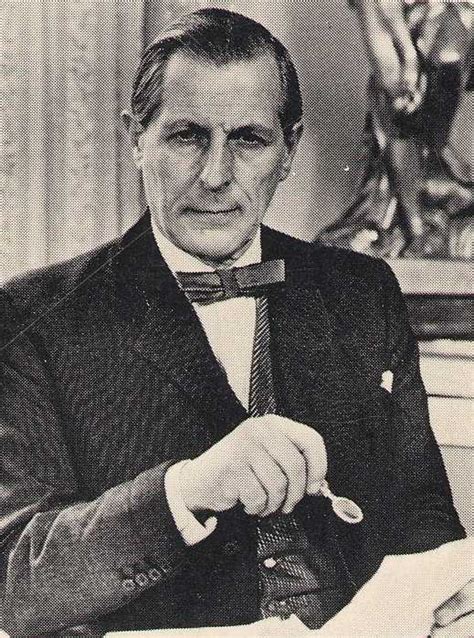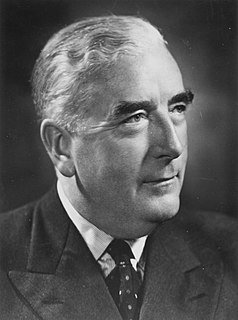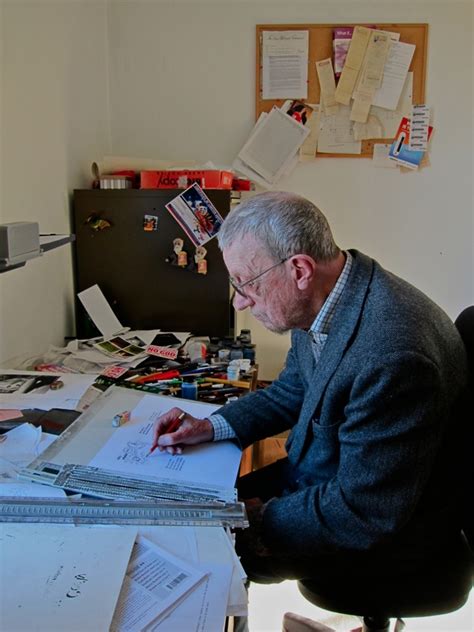Top 1009 Riches And Poors Quotes & Sayings - Page 17
Explore popular Riches And Poors quotes.
Last updated on December 11, 2024.
Bless them that persecute you.' If our enemy cannot put up with us any longer and takes to cursing us, our immediate reaction must be to lift up our hands and bless him. Our enemies are the blessed of the Lord. Their curse can do us no harm. May their poverty be enriched with all the riches of God, with the blessing of Him whom they seek to oppose in vain. We are ready to endure their curses so long as they redound to their blessing.
Oh, my fellow men, do not defile your bodies with sinful foods. We have corn, we have apples bending down the branches with their weight, and grapes swelling on the vines. There are sweet-flavored herbs, and vegetables which can be cooked and softened over the fire, nor are you denied milk or thyme-scented honey. The earth affords a lavish supply of riches, of innocent foods, and offers you banquets that involve no bloodshed or slaughter; only beasts satisfy their hunger with flesh, and not even all of those, because horses, cattle, and sheep live on grass.
In reaffirming the greatness of our nation, we understand that greatness is never a given. It must be earned. Our journey has never been one of shortcuts or settling for less. It has not been the path for the faint-hearted, for those who prefer leisure over work, or seek only the pleasures of riches and fame. Rather, it has been the risk-takers, the doers, the makers of things -- some celebrated, but more often men and women obscure in their labor -- who have carried us up the long, rugged path towards prosperity and freedom.
Our life is composed of events and states of mind. How ewe appraise our life from our deathbed will be predicated not only on what came to us in life but how we lived with it. It will not be simply illness or health, riches or poverty, good luck or bad, which ultimately define whether we believe we have had a good life or not, but the quality of our relationship to these situations: the attitudes of our states of mind. (34)
To have humility is to experience reality, not in relation to ourselves, but in its sacred independence. It is to see, judge, and act from the point of rest in ourselves. Then, how much disappears, and all that remains falls into place. In the point of rest at the center of our being, we encounter a world where all things are at rest in the same way. Then a tree becomes a mystery, a cloud a revelation, each man a cosmos of whose riches we can only catch glimpses. The life of simplicity is simple, but it opens to us a book in which we never get beyond the first syllable.
We are assailed by the temptation of the love of money. If you wish to acquire riches ? they are the bait of the fishers hook ? by greed, by trafficking, by violence, by ruse or by excessive manual work that deprives you of leisure for the service of God ? in a word by any other means ? if you have desired to pile up gold or silver, remember what the Gospel says, 'Fool! They will snatch your soul away during the night! Who will get your hoard' (cf. Lk. 12:20)? Again, 'He piles up money without knowing to whom it will go' (Ps. 39:6).
The only things in which we can be said to have any property are our actions. Our thoughts may be bad, yet produce no poison; they may be good, yet produce no fruit. Our riches may be taken away by misfortune, our reputation by malice, our spirits by calamity, our health by disease, our friends by death. But our actions must follow us beyond the grave; with respect to them alone, we cannot say that we shall carry nothing with us when we die, neither that we shall go naked out of the world.
When we are generous in welcoming people and sharing something with them-some food, a place in our homes, our time-not only do we no longer remain poor: we are enriched. I am well aware that when someone needing food knocks at your door, you always find a way of sharing food; as the proverb says, one can always 'add more water to the beans'! Is it possible to add more water to the beans?...Always?...And you do so with love, demonstrating that true riches consist not in materials things, but in the heart!
A. Douglas Stone, a physicist who has spent his life using quantum mechanics to explore striking new phenomena, has turned his considerable writing skills to thinking about Einstein and the quantum. What he finds and makes broadly understandable are the riches of Einstein's thinking not about relativity, not about his arguments with Bohr, but about Einstein's deep insights into the quantum world, insights that Stone shows speak to us now with all the vividness and depth they had a century ago. This is a fascinating book, lively, engaging, and strong in physical intuition.
So we must lay it down that the association which is a state exists not for the purpose of living together but for the sake of noble actions. Those who contribute most to this kind of association are for that very reason entitled to a larger share in the state than those who, though they may be equal or even superior in free birth and in family, are inferior in the virtue that belongs to a citizen. Similarly they are entitled to a larger share than those who are superior in riches but inferior in virtue.
The present moment is always full of infinite treasure. It contains far more than you can possibly grasp. Faith is the measure of its riches: what you find in the present moment is according to the measure of your faith. Love also is the measure: the more the heart loves, the more it rejoices in what God provides. The will of God presents itself at each moment like an immense ocean that the desire of your heart cannot empty; yet you will drink from that ocean according to your faith and love.
Modern societies accepted the treasures and the power offered them by science. But they have not accepted - they have scarcely even heard - its profounder message: the defining of a new and unique source of truth, and the demand for a thorough revision of ethical premises, for a complete break with the animist tradition, the definitive abandonment of the 'old covenant', the necessity of forging a new one. Armed with all the powers, enjoying all the riches they owe to science, our societies are still trying to live by and to teach systems of values already blasted at the root by science itself.
Great art suspends the reverted eye, the lamented past, the anticipated future: we enter with it into the timeless present; we are with God today, perfect in our manner and mode, open to the riches and the glories of a realm that time forgot, but that great art reminds us of: not by its content, but by what it does in us: suspends the desire to be elsewhere. And thus it undoes the agitated grasping in the heart of the suffering self, and releases us - maybe for a second, maybe for a minute, maybe for all eternity - releases us from the coil of ourselves.
This having learnt, thou hast attained the sum Of wisdom; hope no higher, though all the stars Thou knew'st by name, and all th'ethereal powers, All secrets of the deep, all nature's works, Or works of God in heav'n, air, earth, or sea, And all the riches of this world enjoy'dst, And all the rule, one empire; onlyadd Deeds to thy knowledge answerable, add faith, Add virtue, patience, temperance, add love, By name to come called charity, the soul Of all the rest: then wilt thou not be loath To leave this Paradise, but shalt possess A paradise within thee, happier far.
God might grant us riches, honours, life, and even health, to our own hurt; for every thing that is pleasing to us is not always good for us. If he sends us death, or an increase of sickness, instead of a cure, Vvrga tua et baculus, tuus ipsa me consolata sunt. "Thy rod and thy staff have comforted me," he does it by the rule of his providence, which better and more certainly discerns what is proper for us than we can do; and we ought to take it in good part, as coming from a wise and most friendly hand.
The Sea of Galilee and the Dead Sea are made of the same water. It flows down, clean and cool, from the heights of Herman and the roots of the cedars of Lebanon. the Sea of Galilee makes beauty of it, the Sea of Galilee has an outlet. It gets to give. It gathers in its riches that it may pour them out again to fertilize the Jordan plain. But the Dead Sea with the same water makes horror. For the Dead Sea has no outlet. It gets to keep.
With his continual doctrine [Bishop Hooper] adjoined due and discreet correction, not so much severe to any as to them which for abundance of riches and wealthy state thought they might do what they listed. And doubtless he spared no kind of people, but was indifferent to all men, as well rich as poor, to the great shame of no small number of men nowadays. Whereas many we see so addicted to the pleasing of great and rich men, that in the meantime they have no regard to the meaner sort of poor people, whom Christ hath bought as dearly as the other.
But if anyone were to conduct his life by reason He would find great riches in living a peaceful life And being contented; one is never short of a little But men want always to be powerful and famous So that their fortune rests on a solid foundation And they can spend a placid life in opulence. There isn't a hope of it; to attain great honours You have to struggle along a dangerous way And even when you reach the top there is envy Which can strike you down like lightning into Tartarus. For envy, like lightning, generally strikes at the top Or any point which sticks out from the ordinary level.
Envy, my children, follows pride; whoever is envious is proud. See, envy comes to us from Hell; the devils having sinned through pride, sinned also through envy, envying our glory, our happiness. Why do we envy the happiness and the goods of others? Because we are proud; we should like to be the sole possessors of talents, riches, of the esteem and love of all the world! We hate our equals, because they are our equals; our inferiors, from the fear that they may equal us; our superiors, because they are above us.
I do not believe we can truly enter into our own inner pain and wounds and open our hearts to others unless we have had an experience of God, unless we have been touched by God. We must be touched by the Father in order to experience, as the prodigal son did, that no matter how wounded we may be, we are loved. And not only are we loved, but we too are called to heal and to liberate. This healing power in us will not come from our capacities and our riches, but in and through our poverty. We are called to discover that God can bring peace, compassion and love through our wounds.
When we start helping the weak and the poor to rise everyone will begin to change. Those who have power and riches will start to become more humble, and those who are rising up will leave behind their need to be victims, their need to be angry or depressed....This is the spirituality of life, that helps people to rise up and take their place. It is not a spirituality of death. Jesus wants those who have been crushed to rise up and those who have power to discover that there is another road, a road of sharing and compassion.
When we are on the beach we only see a small part of the ocean. However, we know that there is much more beyond the horizon. We only see a small part of God's great love, a few jewels of His great riches, but we know that there is much more beyond the horizon. The best is yet to come, when we see Jesus face-to-face.
To some people the ego is evil. It gives you so much. It gives you everything you want. But it takes back too much in return. It gives you everything: money, riches, women, glamour, everything you want. But in return it takes back so much, and you're soulless. That's its goal. The ego's goal is to leave you soulless.
The technique of a great seducer requires a facility and an indifference in passing from one object of affection to another which I could never have; however that may be, my loves have left me more often than I have left them, for I have never been able to understand how one could have enough of any beloved. The desire to count up exactly the riches which each new love brings us, and to see it change, and perhaps watch it grow old, accords ill with multiplicity of conquests.
Darling, if I think of all I miss now, I will go crazy. I should not think of that. I only want to think of all that I still have, and then I am rich. Your spirit is always around me, in your diary, our letters, all the things you got for our household. How proud we were of that! And the nearly six years! O God, I thank you for those years. If I never had met you, I would now not have all the sorrow; but I would have missed these riches -- and do these years not abundantly balance the lonely years I face without you?
Jesus was the poorest of the poor. Roman Catholicism, which claims to be His church, is the richest of the rich, the wealthiest institution on earth. () How come, that such an institution, ruling in the name of this same itinerant preacher, whose want was such that he had not even a pillow upon which to rest his head, is now so top-heavy with riches that she can rival - indeed, that she can put to shame - the combined might of the most redoubtable financial trusts, of the most potent industrial super-giants, and of the most prosperous global corporation of the world?
Oh God, God, please come to me, please illumine me, please act in me and through me. I don't know what's right and what's wrong. I can't tell anymore. I could be doing what I feel is right and perhaps I'm deceiving myself. Perhaps it's all my ego and my vanity. Please show me what's right or don't even show me. Please just do it, whether it brings me happiness or unhappiness, riches or poverty, sorrow or joy. Please act in and through me. I love only you.
This is what you should do: love the earth and sun and the animals, despise riches, give alms to everyone that asks, stand up for the stupid and crazy, devote your income and labor to others, hate tyrants, argue not concerning God, have patience and indulgence toward the people, take off your hat to nothing known or unknown or to any man or number of men ... re-examine all you have been told at school or church or in any book, dismiss what insults your own soul, and your very flesh shall be a great poem.
If you suddenly and unexpectedly feel joy, don't hesitate. Give in to it. There are plenty of lives and whole towns destroyed or about to be. We are not wise, and not very often kind. And much can never be redeemed. Still life has some possibility left. Perhaps this is its way of fighting back, that sometimes something happened better than all the riches or power in the world. It could be anything, but very likely you notice it in the instant when love begins. Anyway, that's often the case. Anyway, whatever it is, don't be afraid of its plenty. Joy is not made to be a crumb.
A person is alive only to the degree that he or she is aware. To make the most of life we must constantly strive to be aware of the importance of being aware. Be aware of your senses and use them: So often we are distracted and unconscious of the riches our senses can pour into our lives. We eat food without tasting it, listen to music without hearing it, smell without experiencing the pungency of odors and the delicacy of perfumes, touch without feeling the grain or texture, and see without appreciating the beauty around us.
Man is in pursuit of two goals: he is looking for happinesse and, being by essence empty ("étant vide par essence", Fr.), he is trying to fill (or take up, - "remplir", Fr.) his life; the latter reason play a more considerable role than we ordinarily think. What we take for vainglory, ambition, love of power and riches (or wealth), is often, indeed, a need to mask this emptiness, a need to let one's hair down (or to live it up), to put oneself on a false scent or trail. (de se donner le change", Fr.)
I affirm that gain is precisely that which comes oftener to the bad man than to the good; for illegitimate gains never come to the good at all, because they reject them. And lawful gains rarely come to the good, because, since much anxious care is needful thereto, and the anxious care of the good man is directed to weightier matters, rarely does the good man give sufficient attention thereto. Wherefore it is clear that in every way the advent of these riches is iniquitous.
You the rich are no whit more attractive or capable than you who were poor and struggling a few years back. But when before you plodded lonely and unappreciated, now the glamour of the motor and the smart apartment surrounds you with a tangible glory. It is amazing how many friends look you up, call you by name, and extol you, who were once a little timid, or indifferent, or utterly neglectful in your time of dire poverty. One has true friends when one is poor and no riches can be greater than that. They are not so obvious when one is rich.
Nature does not conquer the world to God. It never has. It never will. In America, with its vast abounding wealth, its grand expanse of prairie, its reach of river, and its exuberant productiveness, there is danger that our riches will draw us away from God, and fasten us to earth; that they will make us not only rich, but mean; not only wealthy, but wicked. The grand corrective is the cross of Christ, seen in the sanctuary where the life and light of God are exhibited, and where the reverberation of the echoes from the great white throne are heard.
Sitting in the flickering light of the candles on this kerchief of sand, on this village square, we waited in the night. We were waiting for the rescuing dawn - or for the Moors. Something, I know not what, lent this night a savor of Christmas. We told stories, we joked, we sang songs. In the air there was that slight fever that reigns over a gaily prepared feast. And yet we were infinitely poor. Wind, sand, and stars. The austerity of Trappists. But on this badly lighted cloth, a handful of men who possessed nothing in the world but their memories were sharing invisible riches.
A man may be a tough, concentrated, successful moneymaker and never contribute to his country anything more than a horrible example. A manager may be tough and practical, squeezing out, while the going is good, the last ounce of profit and dividend, and may leave behind him an exhausted industry and a legacy of industrial hatred. A tough manager may never look outside his own factory walls or be conscious of his partnership in a wider world. I often wonder what strange cud such men sit chewing when their working days are over, and the accumulating riches of the mind have eluded them.
Given that we desire long life, should we not take eternal life into account? If we long for a kingdom which, however enduring, has an end, and glory and joy which, great as they are, will fade, and wealth that will perish with this present life, and we labour for the sake of such things; ought we not to seek the kingdom, glory, joy and riches which, as well as being all-surpassing, are unfading and endless, and ought we not to endure a little constraint in order to inherit it?
If ever two were one, then surely we. If ever man were lov'd by wife, then thee; If ever wife was happy in a man, Compare with me, ye women, if you can I prize thy love more than whole mines of Gold. Or all the riches that the East doth hold. My love is such that rivers cannot quench, Nor ought but love from thee, give recompense. Thy love is such I can no way repay, The heavens reward thee manifold repay, Then while we live, in love let's so persevere That when we live no more, we may live ever.
All my life one of my greatest desires has been to travel-to see and touch unknown countries, to swim in unknown seas, to circle the globe, observing new lands, seas, people, and ideas with insatiable appetite, to see everything for the first time and for the last time, casting a slow, prolonged glance, then to close my eyes and feel the riches deposit themselves inside me calmly or stormily according to their pleasure, until time passes them at last through its fine sieve, straining the quintessence out of all the joys and sorrows.
We still have a great amount of work to do in social development, including resolving one of the biggest challenges we face in this area, namely, reducing the gap between high-income earners and people, citizens of our country, who are still living on very modest means indeed. But we cannot, of course, adopt the solution used 80 years ago and simply confiscate the riches of some to redistribute among others. We will use completely different means to resolve this problem, namely, we will ensure good economic growth.
The average personality reshapes frequently, every few years even our bodies undergo a complete overhaul - desirable or not, it is a natural thing that we should change. All right, here were two people who never would change. That is what Mildred Grossman had in common with Holly Golightly. They would never change because they'd been given their character too soon; which, like sudden riches, leads to a lack of proportion: the one had splurged herself into a top-heavy realist, the other a lopsided romantic.
I am grateful for what I am and have. My thanksgiving is perpetual. It is surprising how contented one can be with nothing definite - only a sense of existence. Well, anything for variety. I am ready to try this for the next ten thousand years, and exhaust it. How sweet to think of! my extremities well charred, and my intellectual part too, so that there is no danger of worm or rot for a long while. My breath is sweet to me. O how I laugh when I think of my vague indefinite riches. No run on my bank can drain it, for my wealth is not possession but enjoyment.
Grace is the good pleasure of God that inclines him to bestow benefits upon the undeserving. It is a self-existent principle inherent in the divine nature and appears to us as a self-caused propensity to pity the wretched, spare the guilty, welcome the outcast, and bring into favor those who were before under just disapprobation. Its use to us sinful men is to save us and make us sit together in heavenly places to demonstrate to the ages the exceeding riches of God's kindness to us in Christ Jesus.
The idea, shared by many, that life is a vale of tears, is just as false as the idea shared by the great majority, the idea to which youth and health and riches incline you, that life is a place of entertainment.
Life is a place of service, and in that service one has to suffer a great deal that is hard to bear, but more often to experience a great deal of joy.
But that joy can be real only if people look upon their life as a service, and have a definite object in life outside themselves and their personal happiness.
To have an open self is to provide a free channel for the infinite goodness of God. To have an open self is to keep yourself aware, alert and sensitive to the beauty and wonder of life. God's love will flow through you into the world when you are open. You enlarge the dimensions of your life when you keep yourself open to the highest and best. The key to God's infinite riches is within you; open yourself and you will receive.
Anarchists are extreme libertarian socialists , "libertarian" meaning the demand for freedom from prohibition, and "socialist" meaning the demand for social equality . ...Complete freedom implies equality, since if there are rich and poor, the poor cannot be permitted to take liberties with riches. Complete equality implies freedom, since those who suffer restrictions cannot be the equals of those who impose them.
But I have contrived an explanation which has every advantage; is inviting to christians of every communion; gradually frees them from all religious prejudices; cultivates the social virtues; and animates them by a great, a feasable, a speedy prospect of universal happiness, in a state of liberty and moral equality, freed from the obstacles which subordination, rank, and riches, continually throw in our way. My explanation is accurate and complete, my means are effectual, and irresistable. Our secret association works in a way that nothing can withstand, and man shall soon be free and happy.
Christ is our hope, our cleansing and santification, our resurrection, life and repose. He alone is what we all need, and therefore, the Orthodox Church constantaly pronounces these words aloud so that we may hear them during Holy Services of the Church, and be constantly renewed. For we are inclined to forget the only thing we need. With death all will be taken from us, all earthly goods, riches, beauty of body and raiment, spacious dwellings, etc., but the virtue of the soul, that incorruptible raiment, shall remain with us eternally.
All of us must walk the same strait and narrow path, know the same kind of experiences as those we would seek to lead and to serve. There is not one strait and narrow path for the officers-the chosen-and another for the enlisted men. We are all to experience life "according to the flesh"; there is no other way, for it is the way to immortality and eternal life. Given the resplendent riches of the promised kingdom, why would anyone wish to walk another path than the one that leads us back to our gracious and merciful Father in Heaven?














































